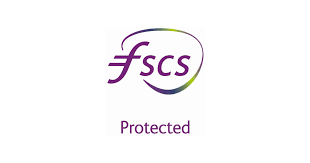Appointeeship | Becoming a DWP Benefits Appointee
Opening a bank account as an appointee and your role and responsibilities
What is ESA?
ESA, or Employment and Support Allowance, is a welfare benefit provided in the UK to individuals with limited work capability due to a disability or health condition. It is designed to provide financial support to people who cannot work or have difficulty finding and maintaining employment because of their physical or mental health.
Here are some key features of ESA in the UK:
- Eligibility: To be eligible for ESA, you must meet certain criteria related to your health and work capability. You must typically undergo a Work Capability Assessment (WCA) to determine your eligibility. The assessment evaluates your ability to work and perform various activities, considering your health condition or disability.
- Types of ESA:
- There are two main types of ESA: a. Contributory ESA: This type is based on your National Insurance contributions. It is available to individuals who have paid enough National Insurance contributions within a specific period. b. Income-related ESA: This type is means-tested and considers your income and savings, along with your health condition or disability.
- Assessment Phase: During the assessment phase, you may receive a reduced rate of ESA while your eligibility is being determined. The length of this phase can vary depending on your circumstances and the outcome of your assessment.
- Support Group and Work-Related Activity Group: If you are deemed eligible for ESA, you will be placed in one of two groups:
- Support Group: This group is for individuals with the most severe health conditions or disabilities. People in this group do not have work-related requirements and receive a higher rate of ESA.
- Work-Related Activity Group: This group is for individuals who are considered capable of doing some work-related activities but may need additional support. They receive a lower rate of ESA and may be required to take part in work-related activities, such as training or job-seeking support.
- Assessment and Reviews: ESA recipients may be periodically reassessed to determine if their health condition or disability has changed and if they remain eligible for the benefit.
- Housing Costs: If you are eligible for income-related ESA, you may also receive help with housing costs, such as rent.
- Work-Related Support: ESA provides access to work-related support and services to help individuals move towards employment when and if they are deemed capable.
It’s important to note that eligibility criteria, rates, and regulations regarding ESA can change, so it’s advisable to check with the Department for Work and Pensions (DWP) or a relevant government website for the most up-to-date information and guidance if you are considering applying for or are currently receiving ESA.
What is ESA?
ESA, or Employment and Support Allowance, is a welfare benefit provided in the UK to individuals with limited work capability due to a disability or health condition. It is designed to provide financial support to people who cannot work or have difficulty finding and maintaining employment because of their physical or mental health.
Here are some key features of ESA in the UK:
- Eligibility: To be eligible for ESA, you must meet certain criteria related to your health and work capability. You must typically undergo a Work Capability Assessment (WCA) to determine your eligibility. The assessment evaluates your ability to work and perform various activities, considering your health condition or disability.
- Types of ESA:
- There are two main types of ESA: a. Contributory ESA: This type is based on your National Insurance contributions. It is available to individuals who have paid enough National Insurance contributions within a specific period. b. Income-related ESA: This type is means-tested and considers your income and savings, along with your health condition or disability.
- Assessment Phase: During the assessment phase, you may receive a reduced rate of ESA while your eligibility is being determined. The length of this phase can vary depending on your circumstances and the outcome of your assessment.
- Support Group and Work-Related Activity Group: If you are deemed eligible for ESA, you will be placed in one of two groups:
- Support Group: This group is for individuals with the most severe health conditions or disabilities. People in this group do not have work-related requirements and receive a higher rate of ESA.
- Work-Related Activity Group: This group is for individuals who are considered capable of doing some work-related activities but may need additional support. They receive a lower rate of ESA and may be required to take part in work-related activities, such as training or job-seeking support.
- Assessment and Reviews: ESA recipients may be periodically reassessed to determine if their health condition or disability has changed and if they remain eligible for the benefit.
- Housing Costs: If you are eligible for income-related ESA, you may also receive help with housing costs, such as rent.
- Work-Related Support: ESA provides access to work-related support and services to help individuals move towards employment when and if they are deemed capable.
It’s important to note that eligibility criteria, rates, and regulations regarding ESA can change, so it’s advisable to check with the Department for Work and Pensions (DWP) or a relevant government website for the most up-to-date information and guidance if you are considering applying for or are currently receiving ESA.

